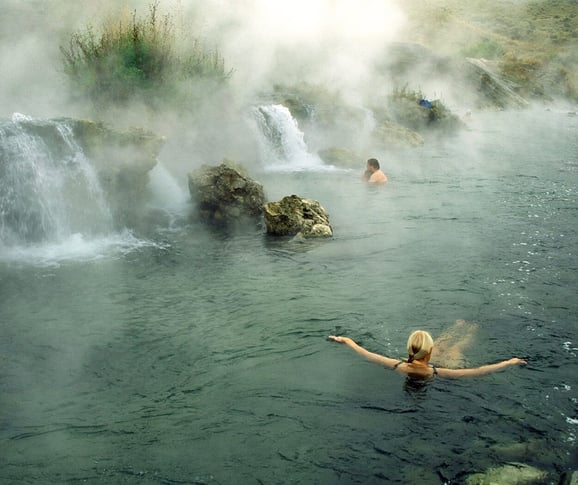
It's a vision problem that no laser surgery can cure that keeps us from seeing the central source of happiness right next to us. The problem is called adulthood. Those afflicted with this condition have trouble focusing on nearby objects of amusement and the realm that delivers the most enjoyment per square inch: play. Adults are oblivious to what they knew as kids—that play is where you live.
Grownups aren't supposed to play. We have problems. We're too busy. We have important things to do. It turns out, though, that there are few things more important to your happiness than frequent doses of play. As a study led by Princeton researcher Alan Krueger found, of all the things on the planet, we're at our happiest when we're involved in engaging leisure activities. Why not do more of that?
LAST TABOO?
Play isn’t just for kids. It’s the source of engaged living for adults too, and a whole lot more. It's an essential component of work-life balance and stress management. Play has been shown to be one of the best buffers against stress and setbacks. It increases positive mood, which helps build resiliency.
Playfulness at work was found by a study in Taiwan to increase productivity and innovation. Energy increases when we approach something in a playful way. Play also breaks up the mental set when we get stuck. It shakes up associations in our brain that keep us stuck and allows new ideas to come forward.
Why don’t we play more often? In a performance-oriented culture, it's a kind of taboo. We think it's a waste of time or that we could be more productive doing other things.
Play doesn't operate on the output metric. It's about input, the experience of life itself. It's precisely the lack of a quantifiable result that allows play to tap a place that satisfies core needs.
THE TRUE SELF
When you're engaged in activities of "personal expressiveness," ones that are self-chosen and that reflect intrinsic goals, you're operating from the "true self," says Alan Waterman of the College of New Jersey.
This leads to optimal psychological functioning (i.e., happiness). We're talking about something far from tangential to your existence. Play scholar John Neulinger called passionate play pursuits none other than the "central life interest."
Play brings you back to life—your life. "Adults need to play because so much of our life is utilitarian, the University of South Alabama's Catherine O'Keefe explained to me. "We need to reconnect with the things of our lives that ground us in who we really are and why we like our lives."
When a 40-year-old goes headfirst down a water slide, that person is not 40 anymore. A few decades have been knocked off, because something inside has come alive again. It should be pretty obvious that the animating spark of play is the fast track to happiness. There is no quicker transport to the experiential realm and full engagement than through play, which brings together all the elements you want for the optimal moment.
- Play is 100-percent experience.
- It's done for the intrinsic pleasure, for the participation.
- With no judgment or outcomes needed, play grounds you in the now.
BACK TO LIFE
Researchers say that the more absorbed we are in activities we like to do, in work or life, the happier we are. Abraham Maslow and Mihaly Csikszentmihalyi pinpointed the power of full involvement in the moment to produce optimal experiences. Maslow called optimal moments the time when we are most attuned, "more integrated and less split, more perfectly actualizing."
Contrary to stereotype, engaged play is the gateway not to time-wasting but to times that let you contact deeper realms. When you paint a canvas or play volleyball, you're in a creative improvisation that calls on inner fortitude and commitment and that reflect your values through self-expression. Play satisfies core self-determination needs, such as autonomy and competence, as little else can, connecting you with your mandate to explore and challenge yourself. Play relieves you of the burden to be someone you're not. There's nothing on the line; it's just play.
When it comes to beefing up your happiness, it's hard to do better than engaged play. Not only does it align you with your deepest needs and deliver fun in the moment, but the social component of play is a huge predictor of increased daily well-being, the research shows. Participating in recreational activities has been connected to increased positive mood and experiencing pleasure. And play increases the odds that you're going to have more fun in your life because it kills stress, reducing strain and burnout, boosting your immune system and pumping up vitality and energy.
When you're stressed, the brain's activated emotional hub, the amygdala, suppresses positive mood, fueling a self-perpetuating cycle of negativity. Play can break you out of that straitjacket. It’s the brain’s reset button.
This tonic we write off as trivial is a crucial engine of well-being. In its low-key, humble way, play yanks grownups out of their purposeful sleepwalk to reveal the animating spirit within. You are alive, and play will prove it to you.





